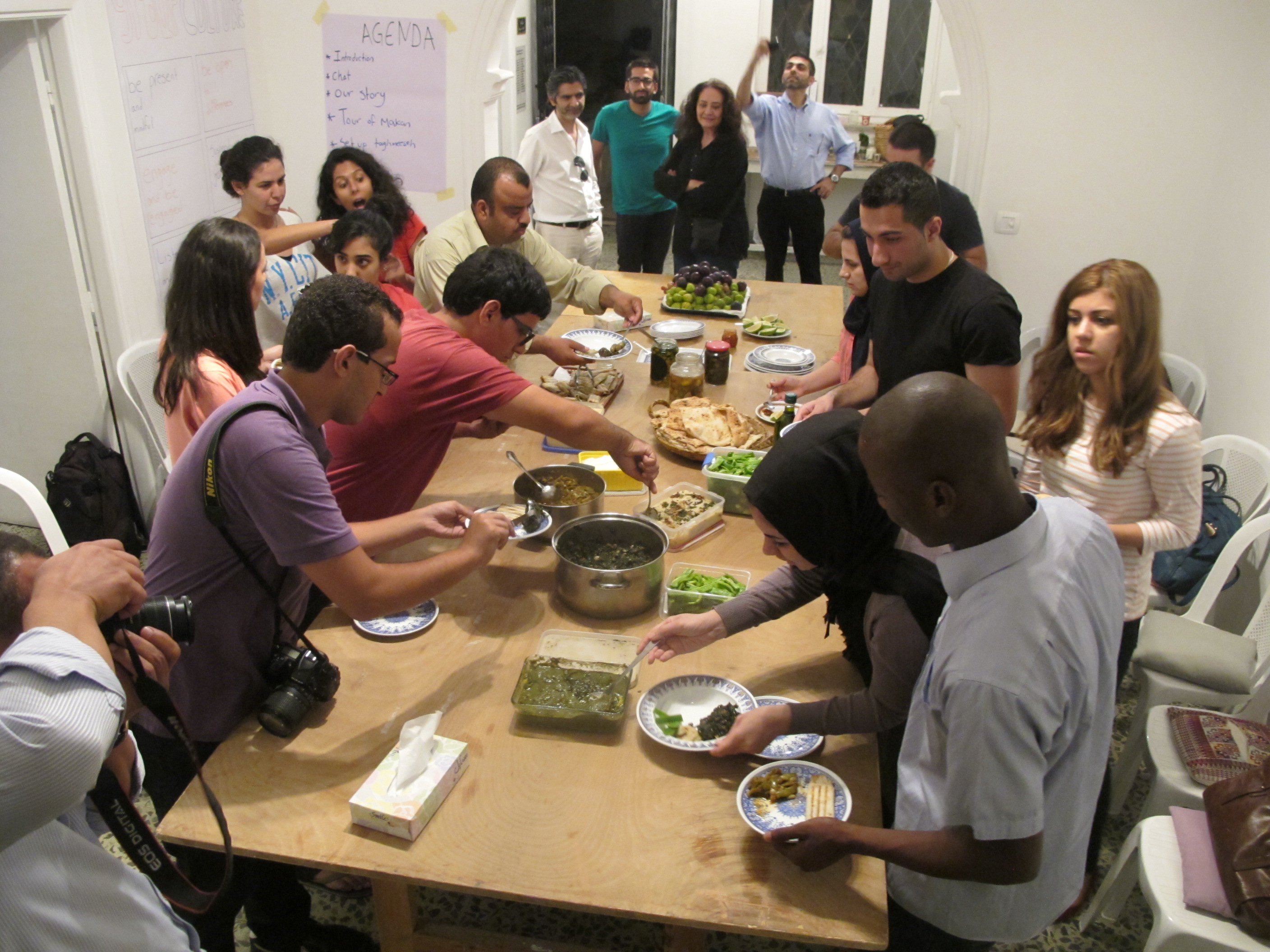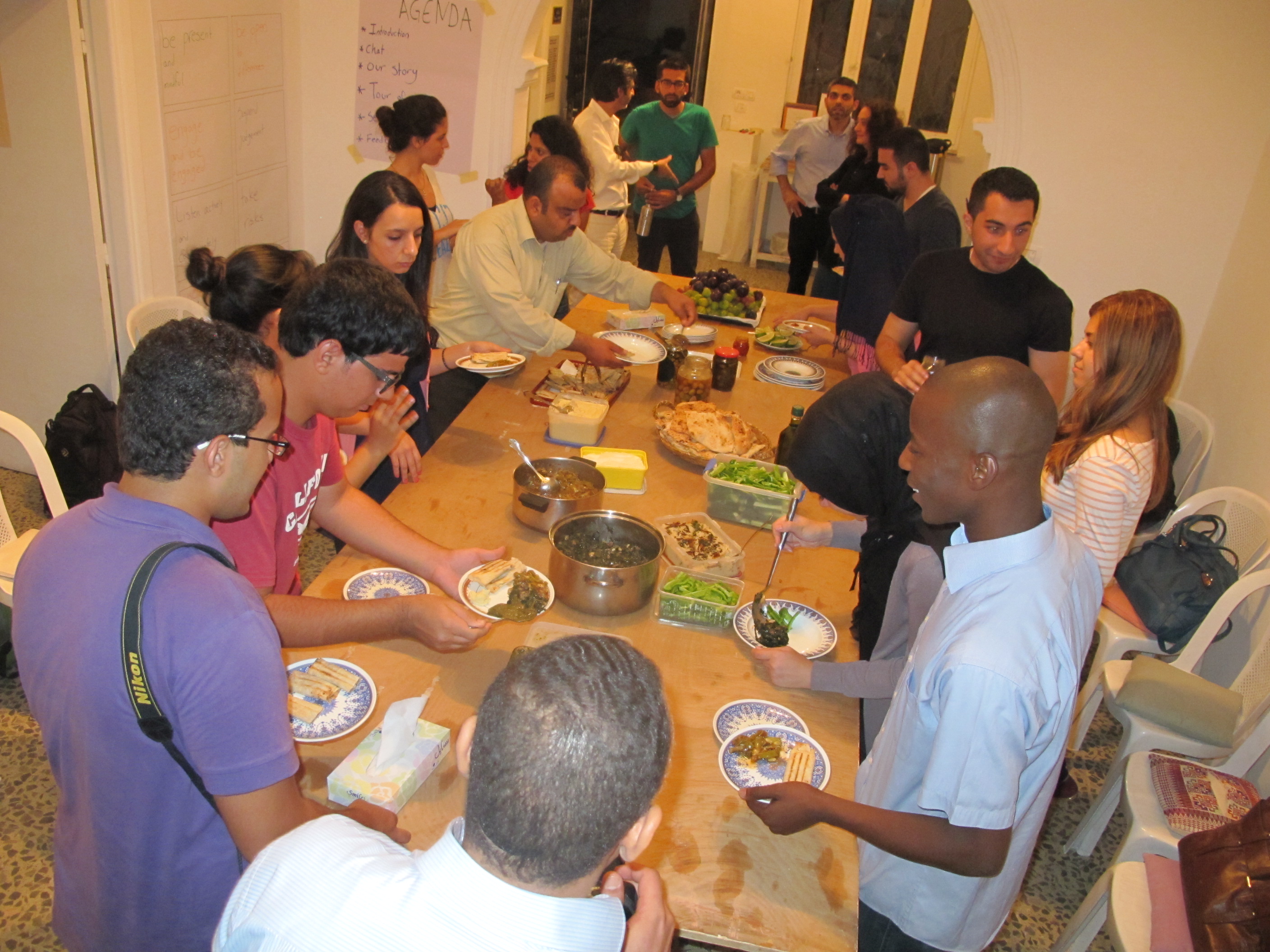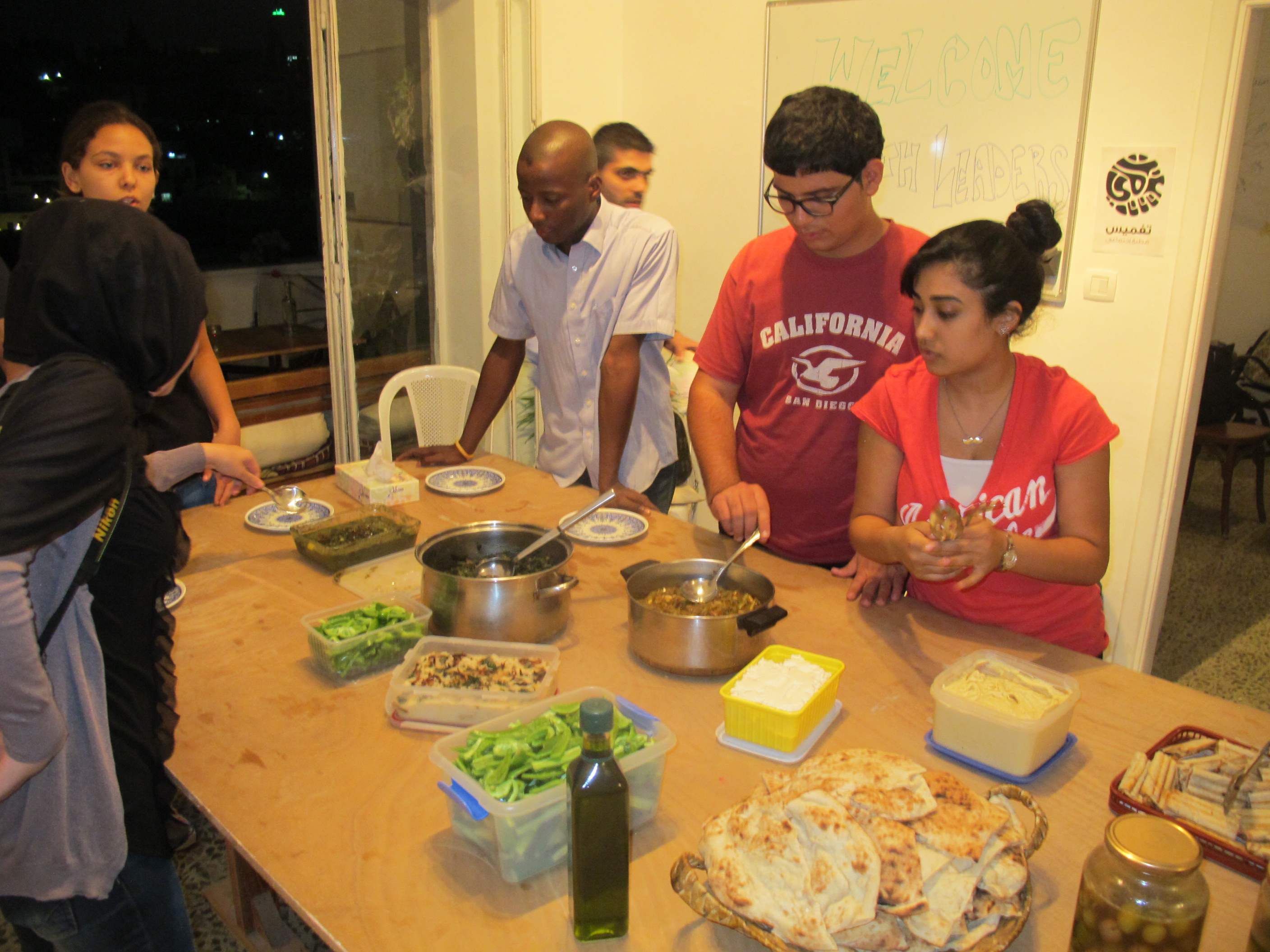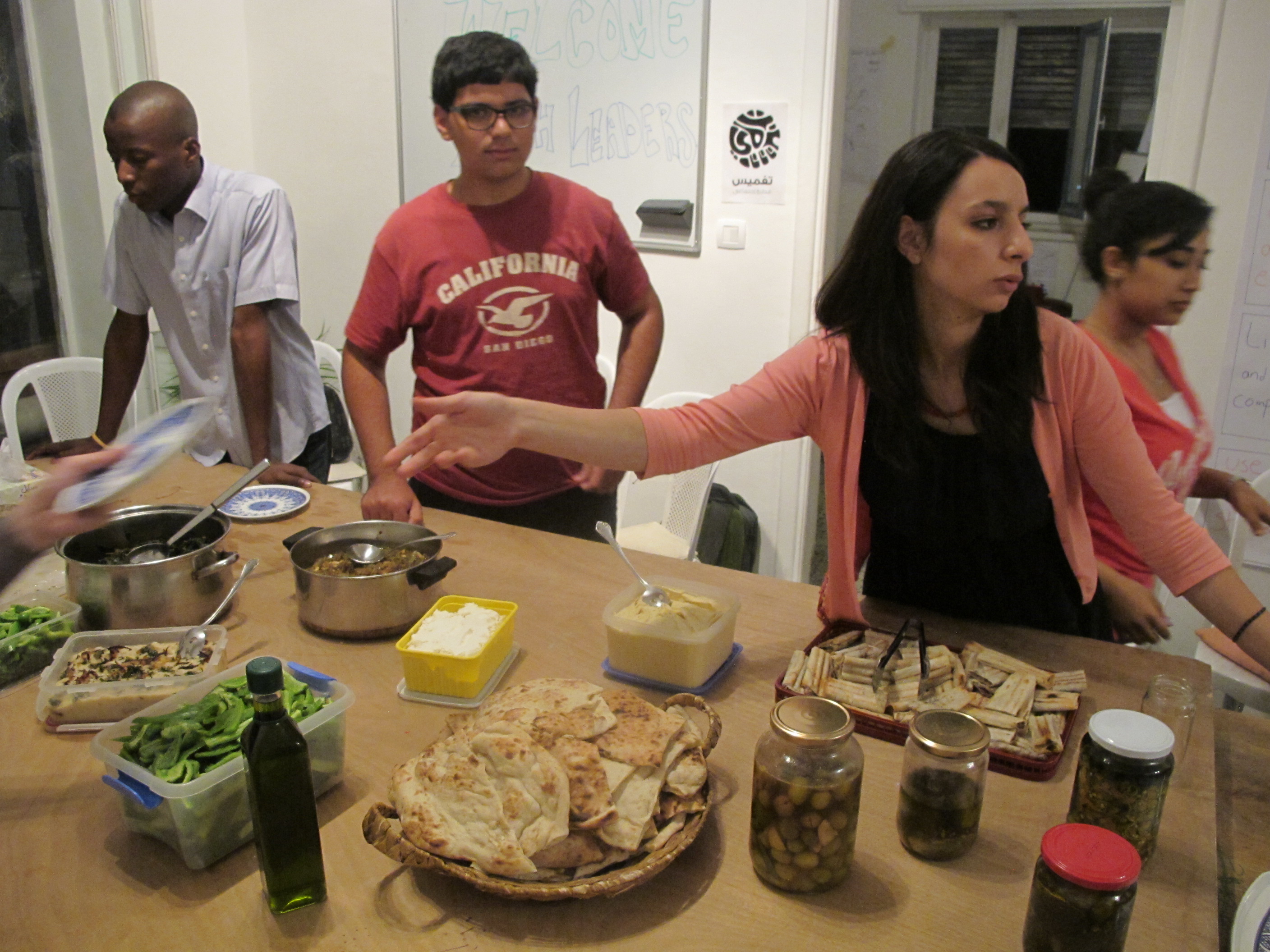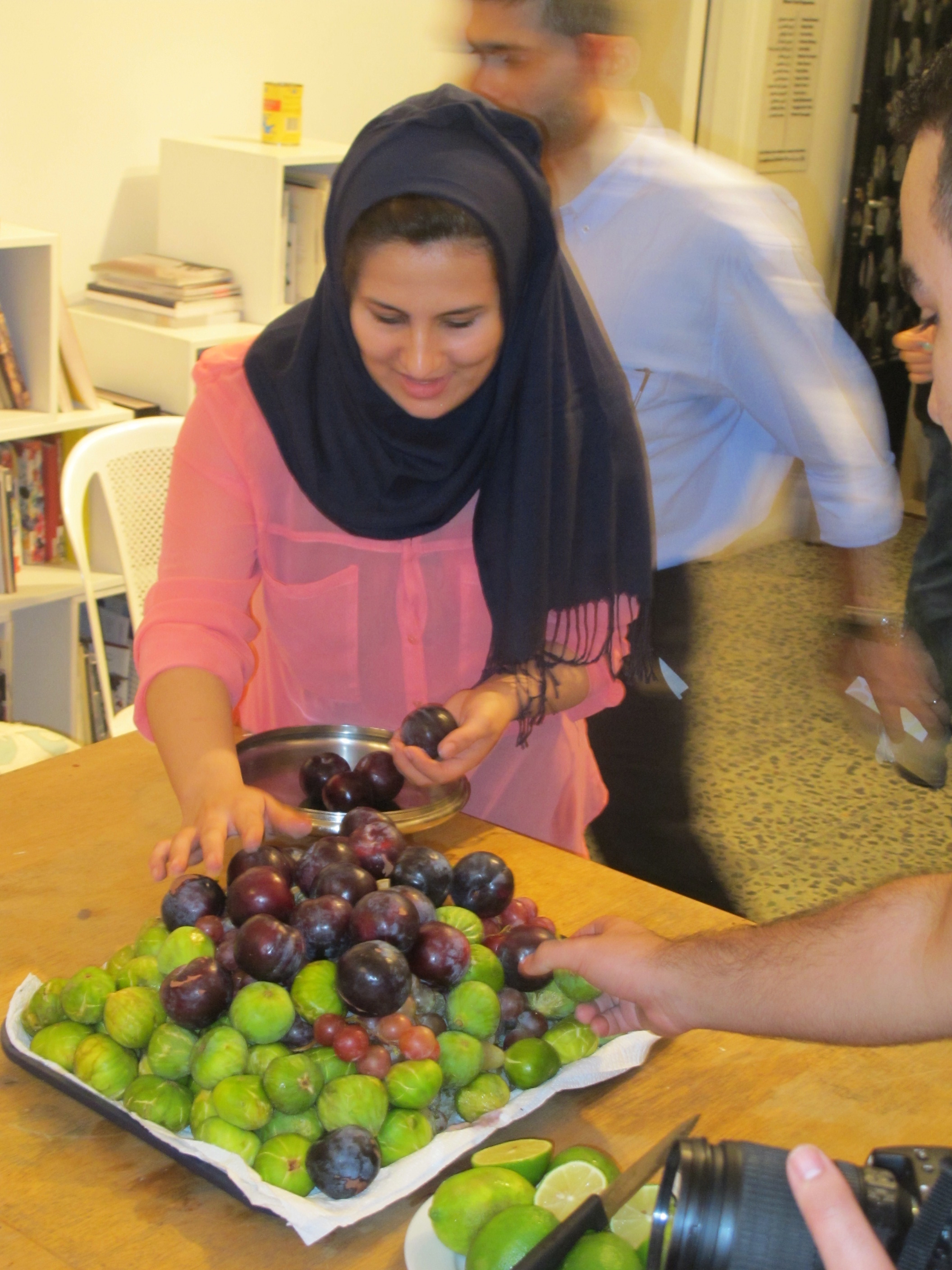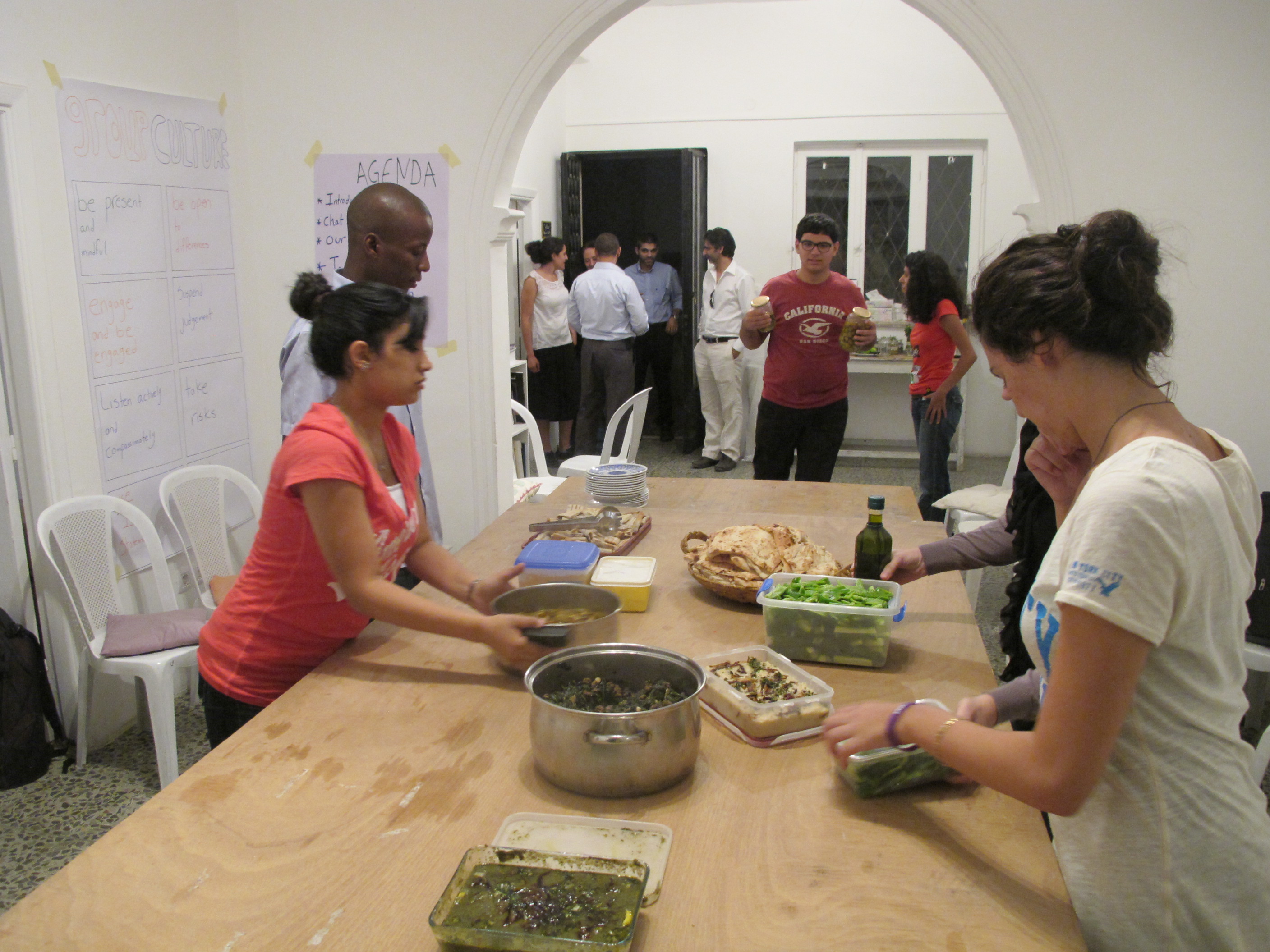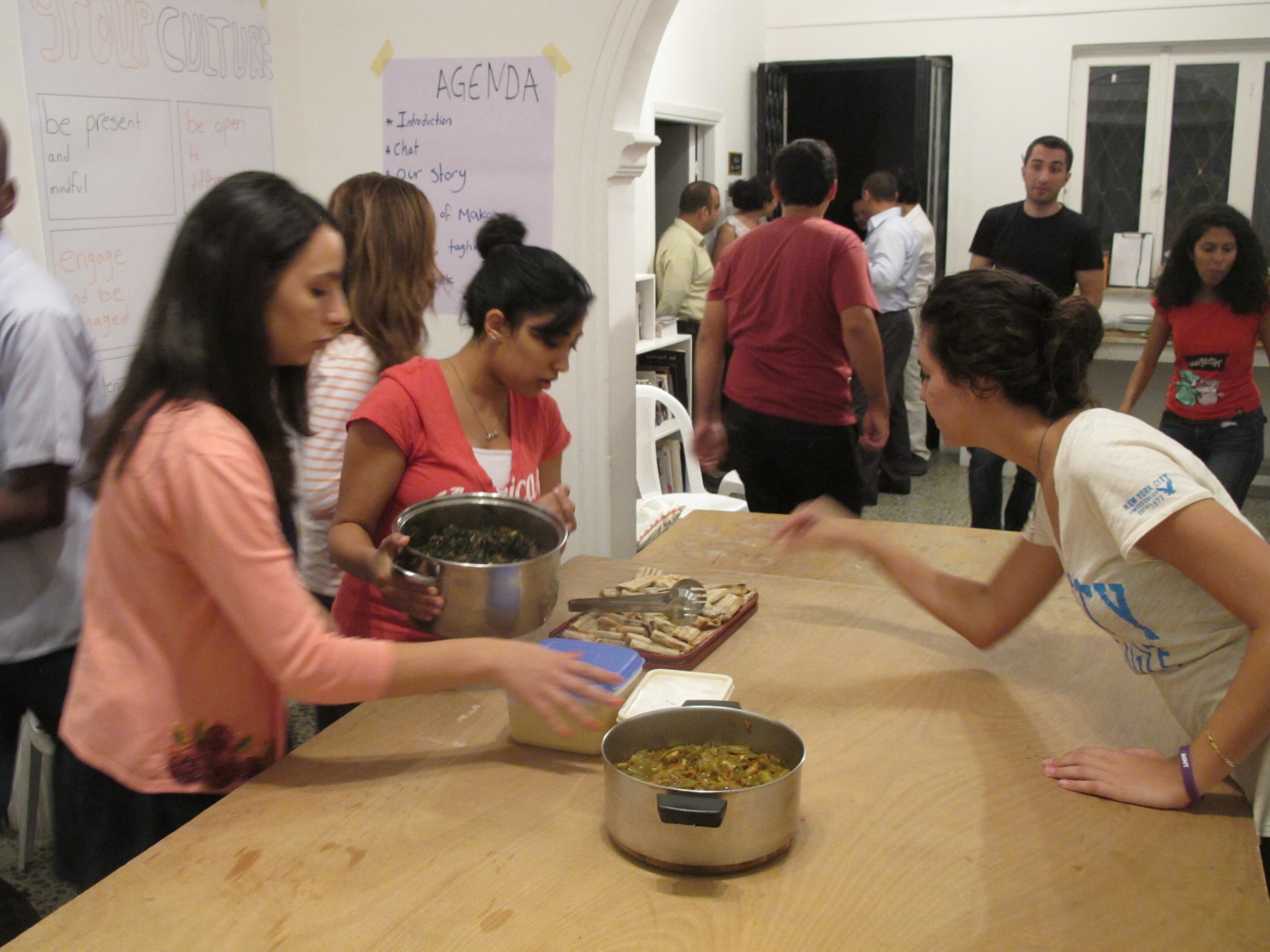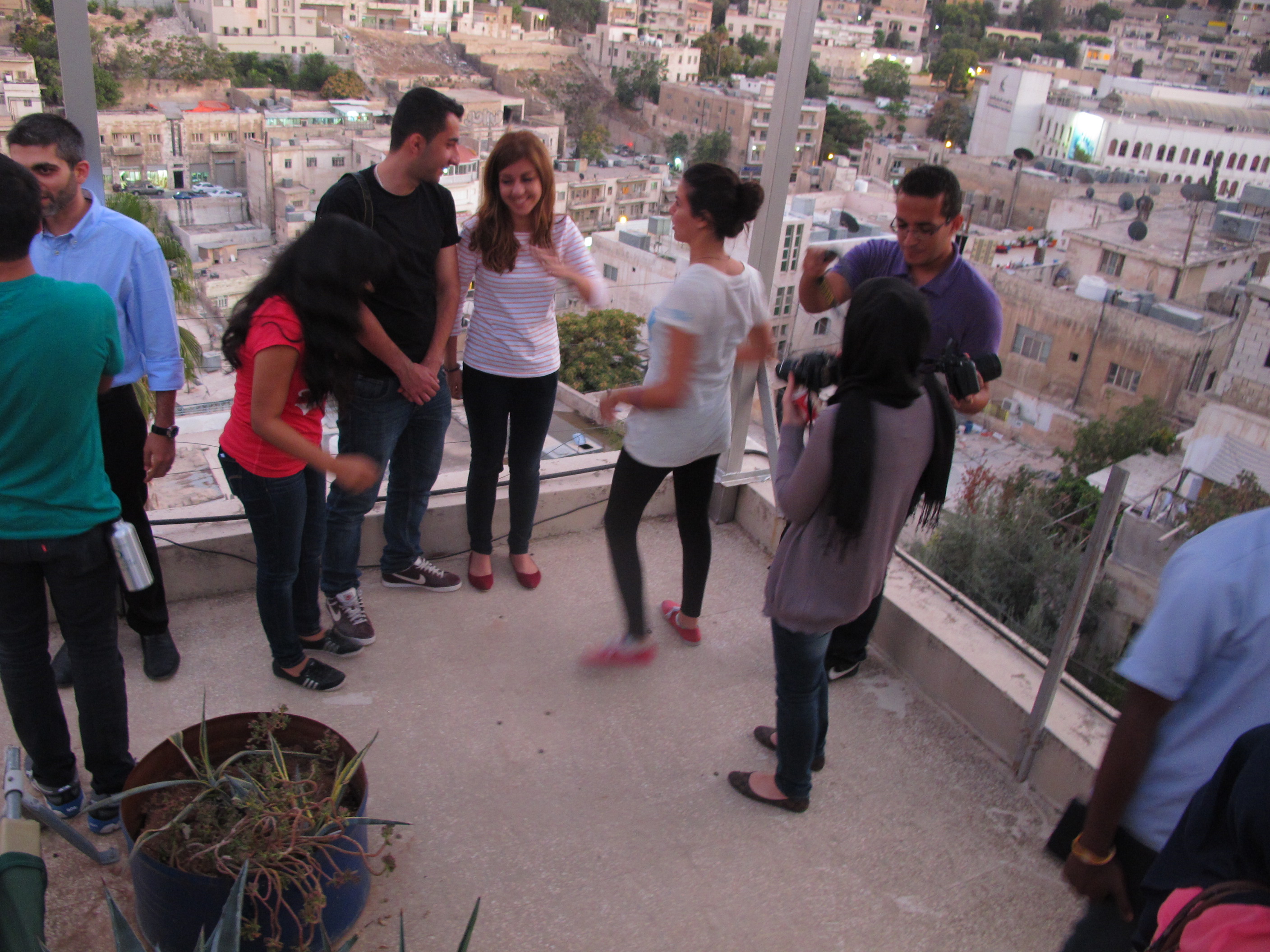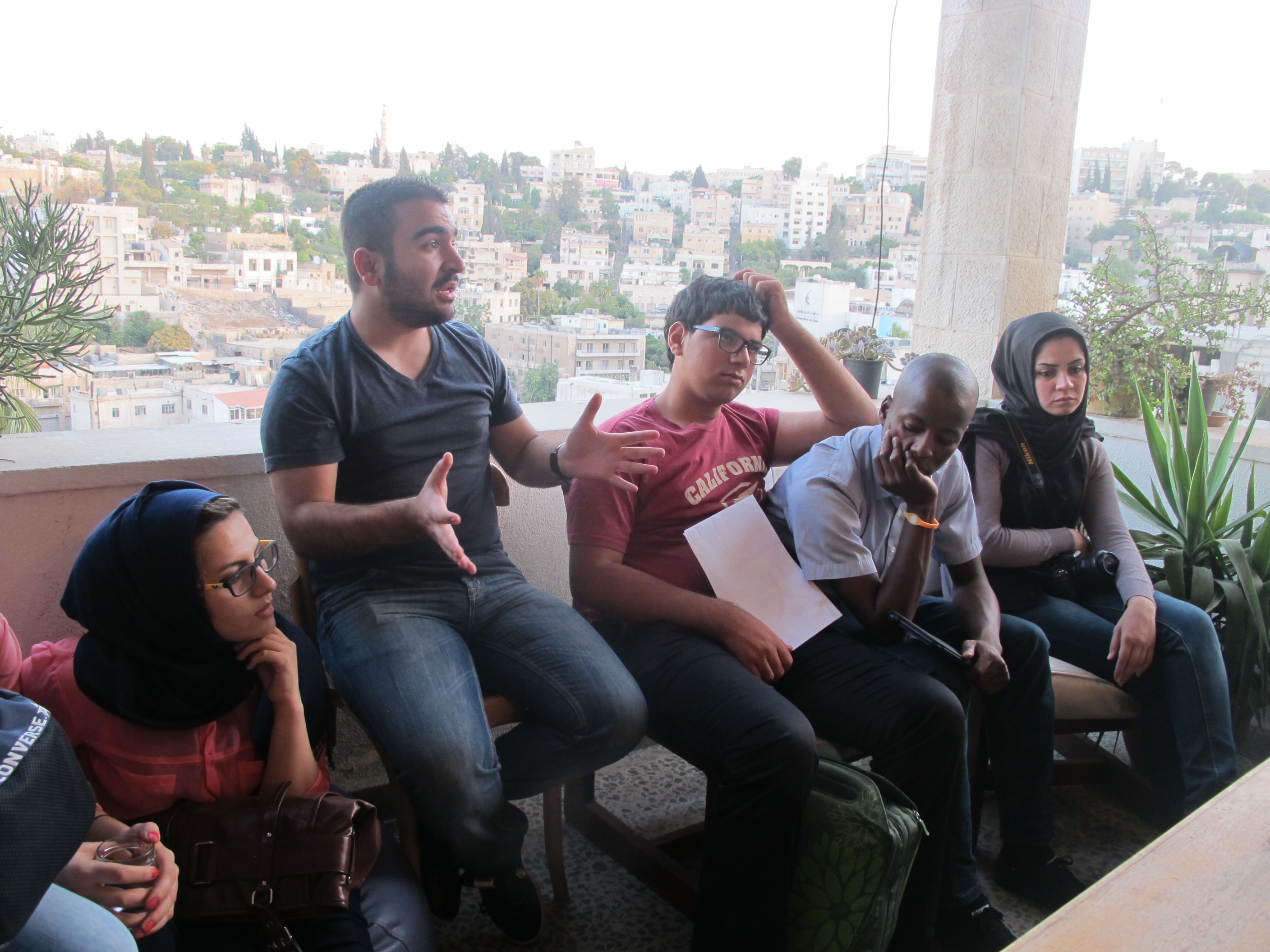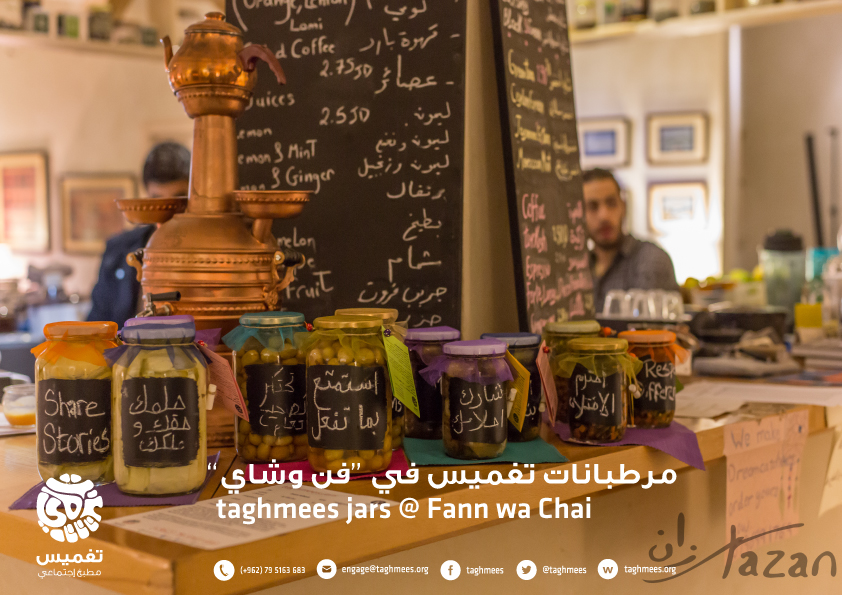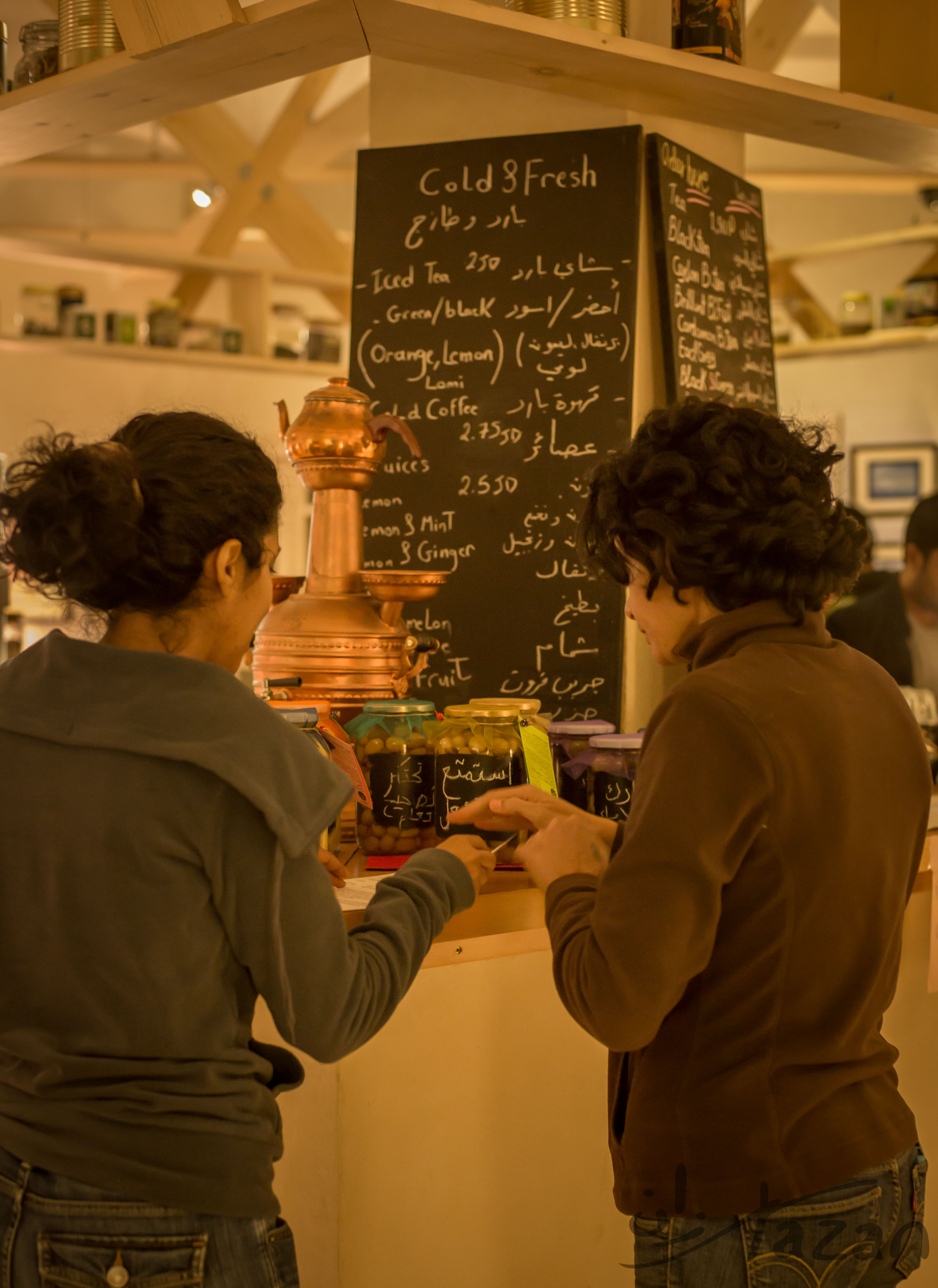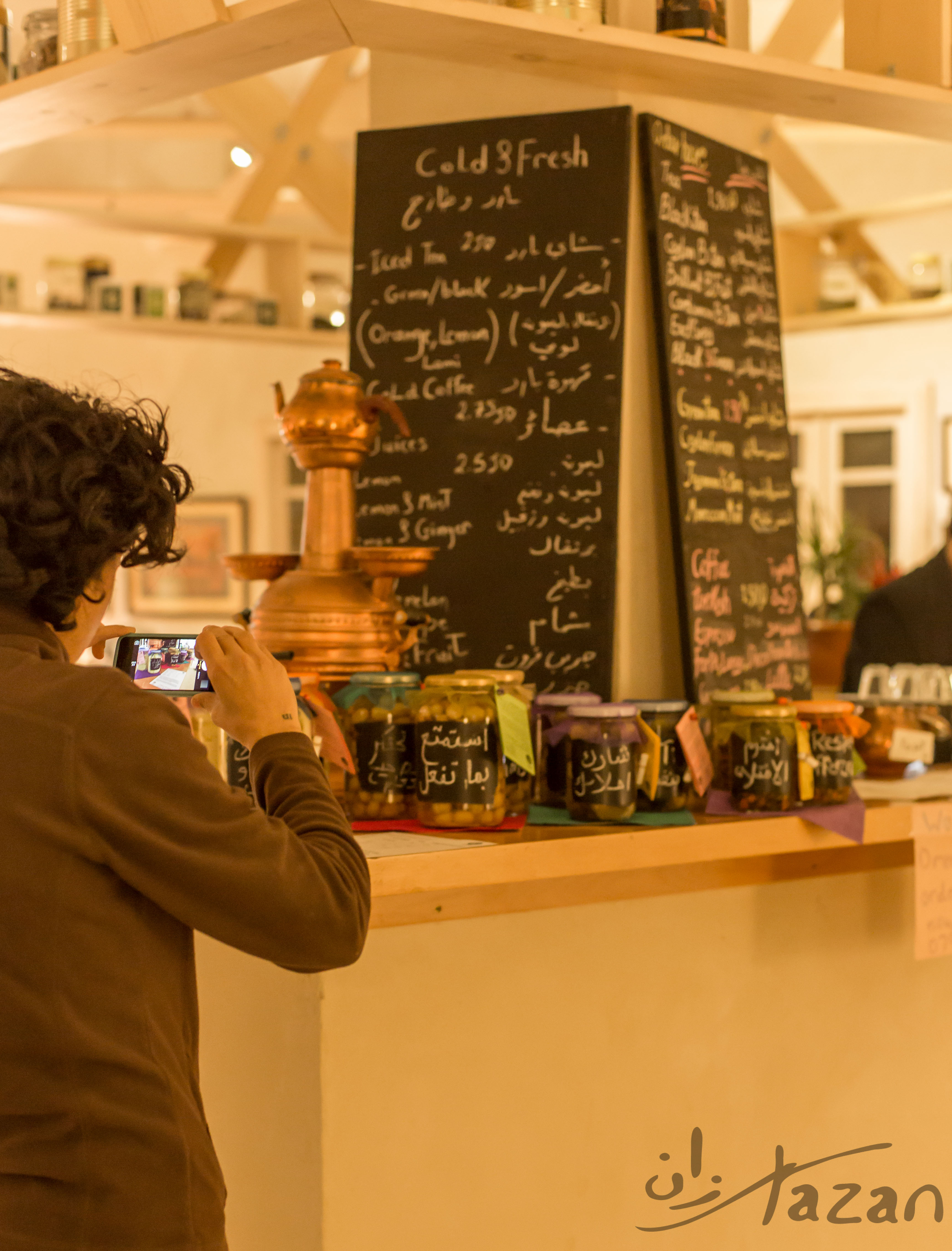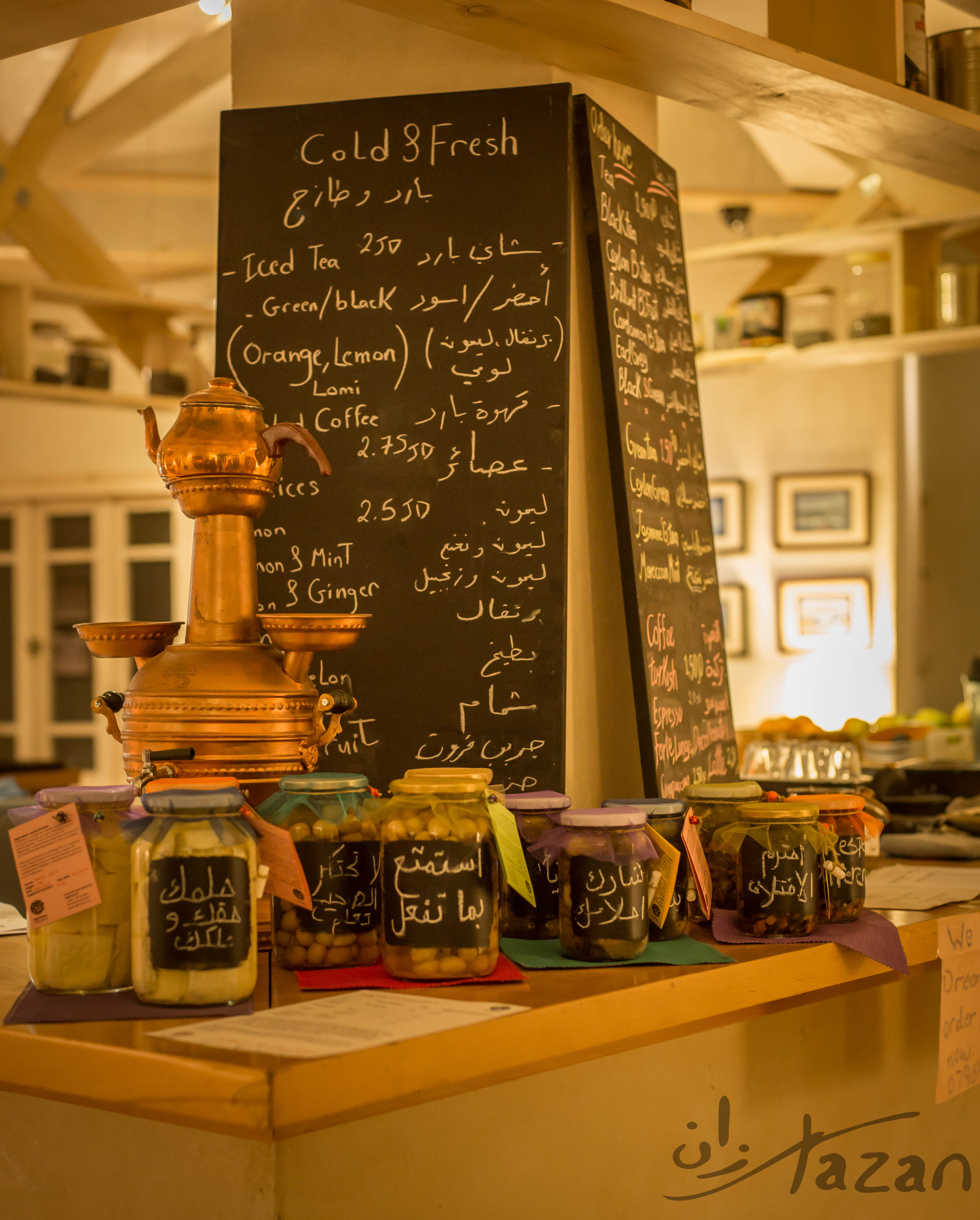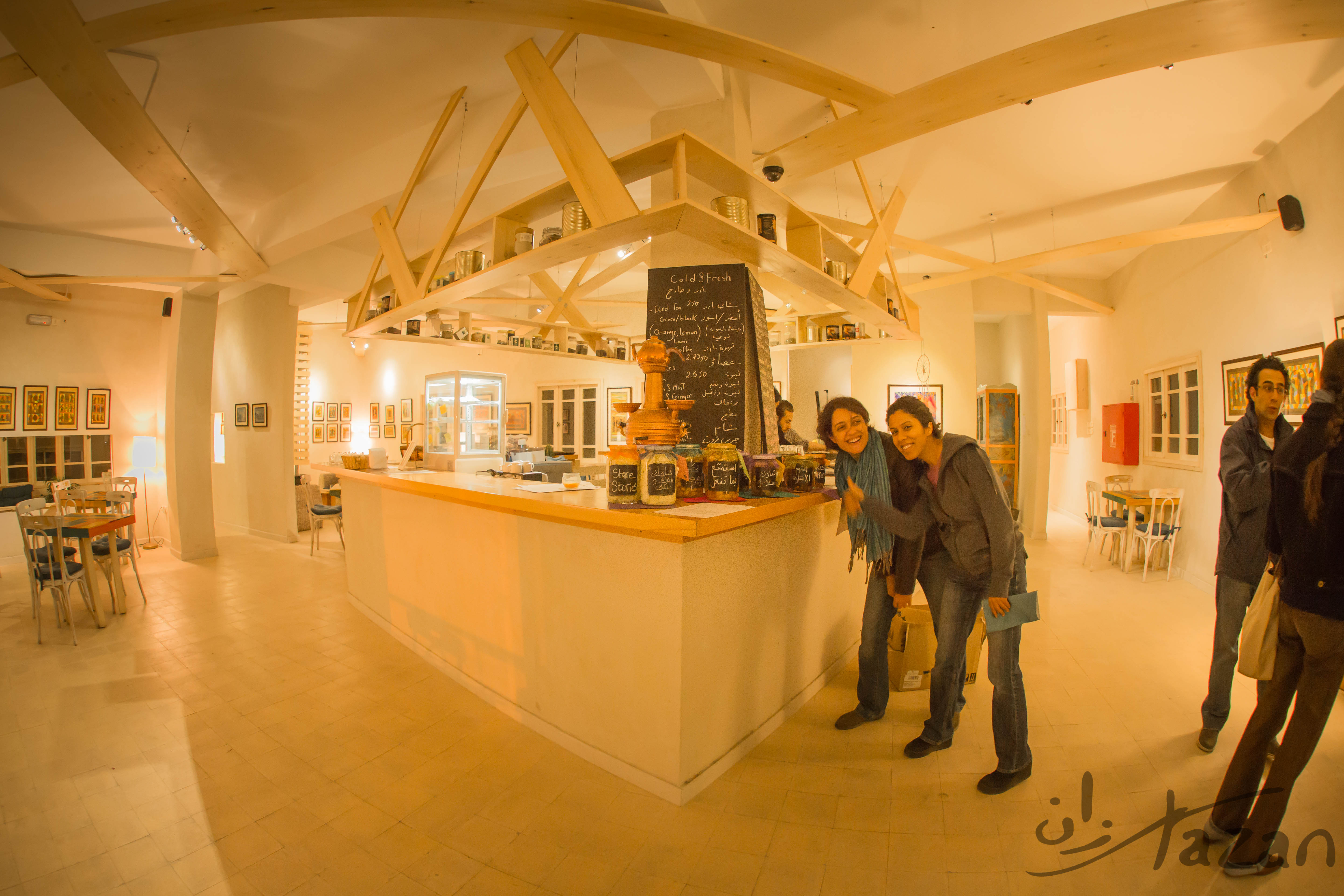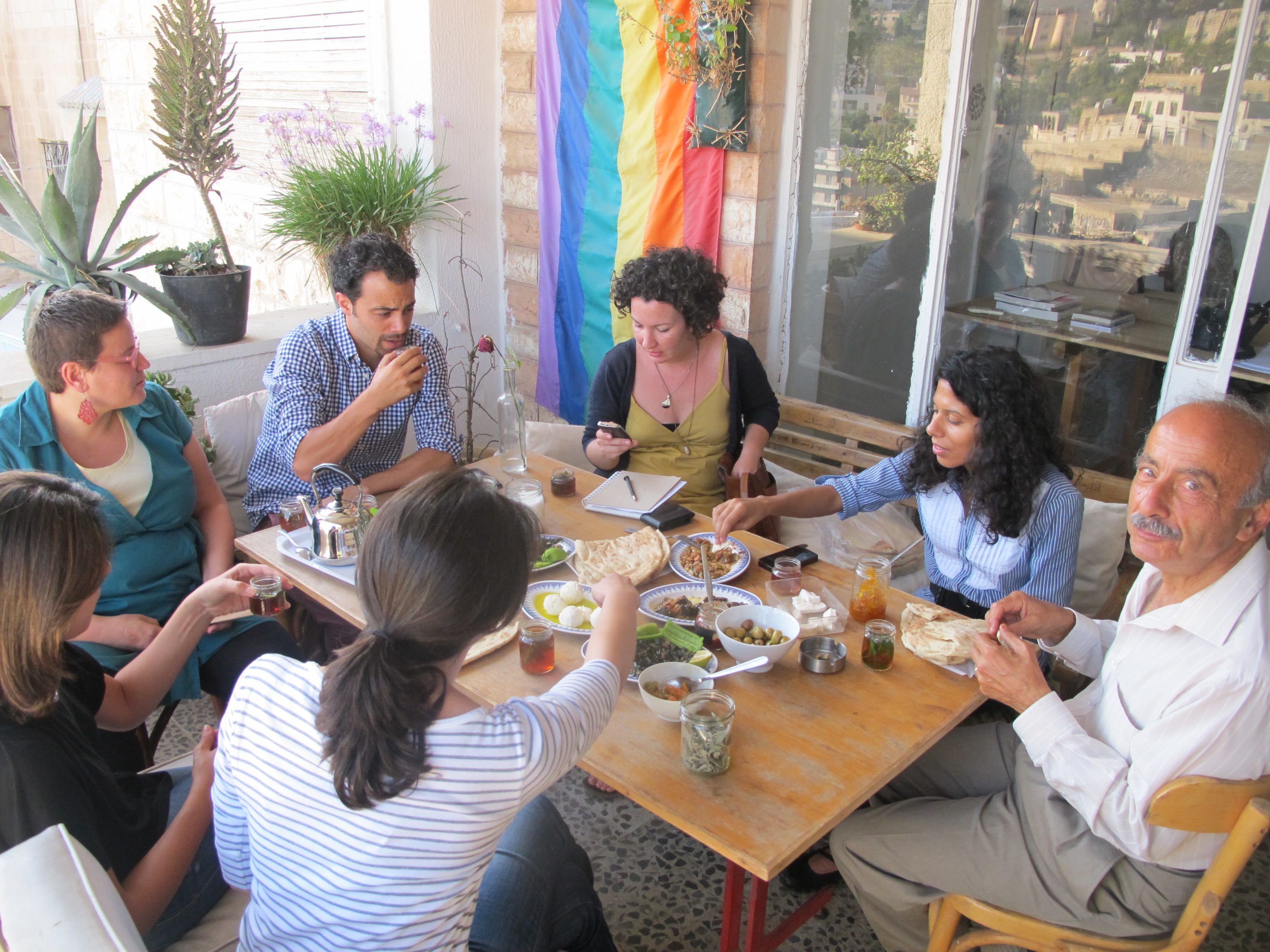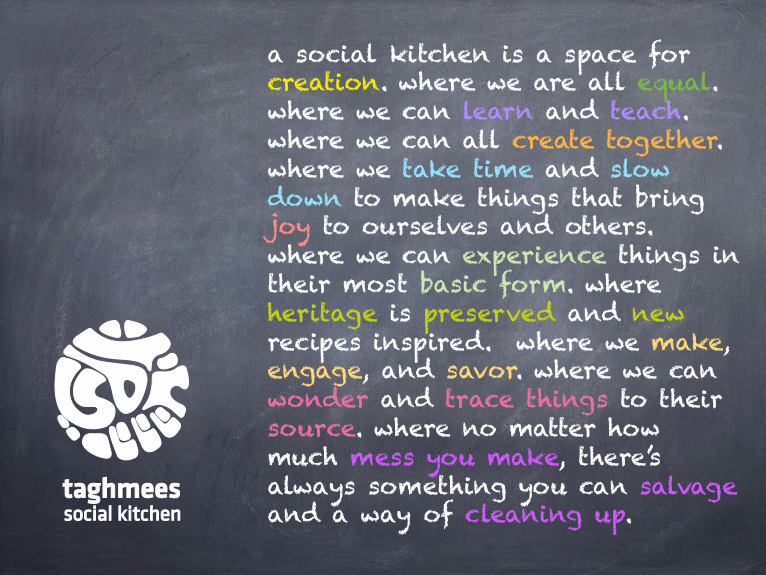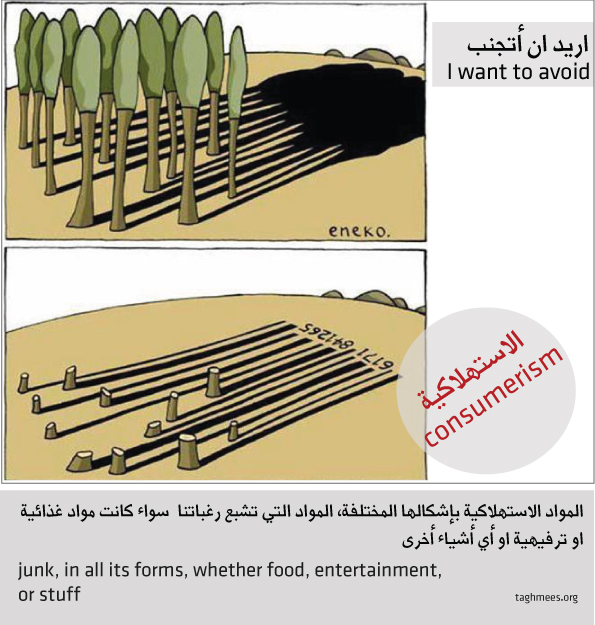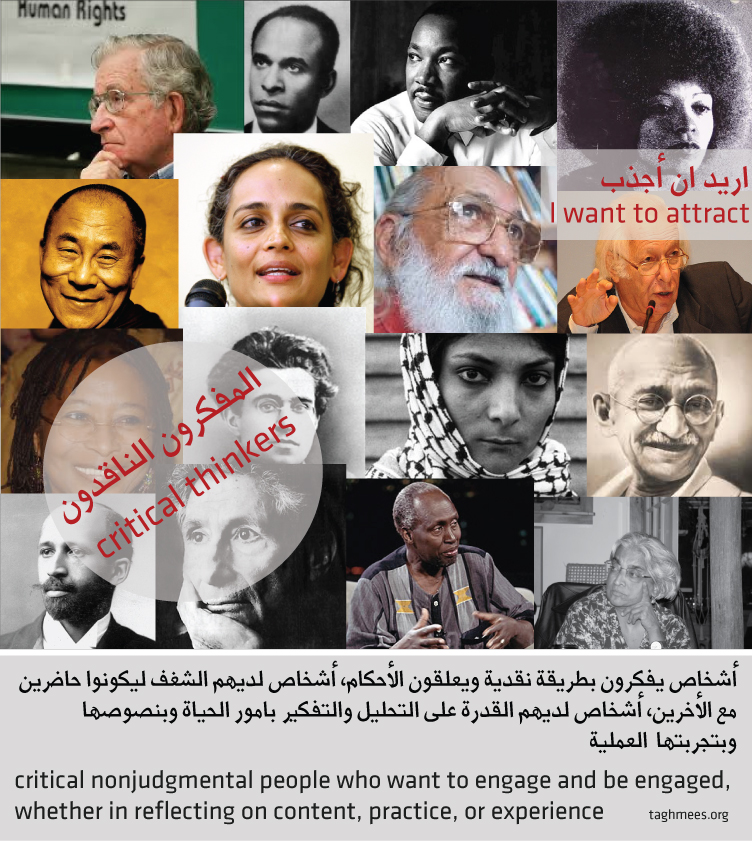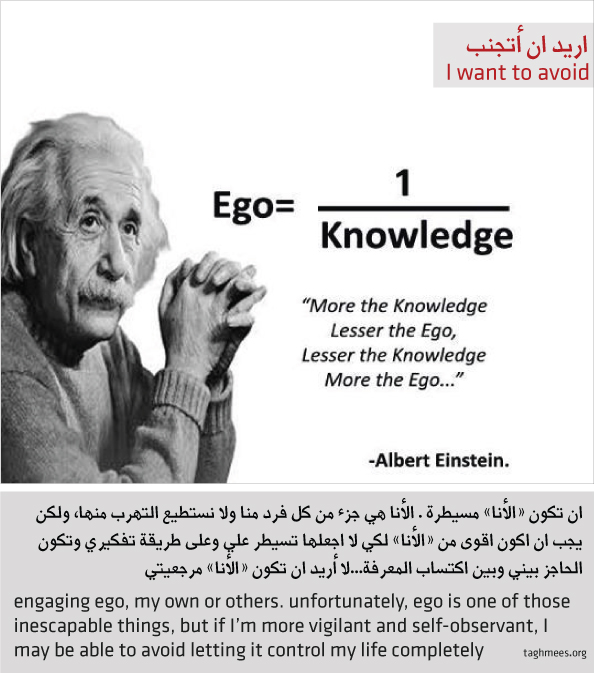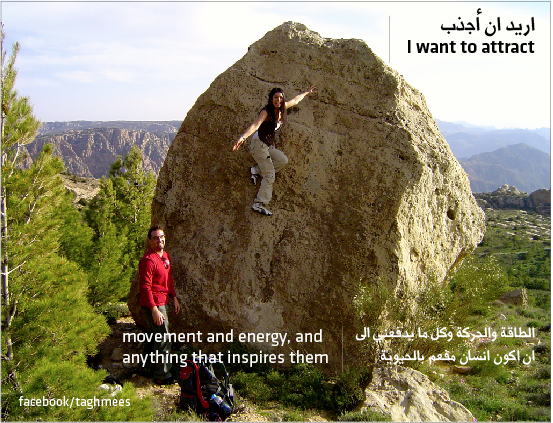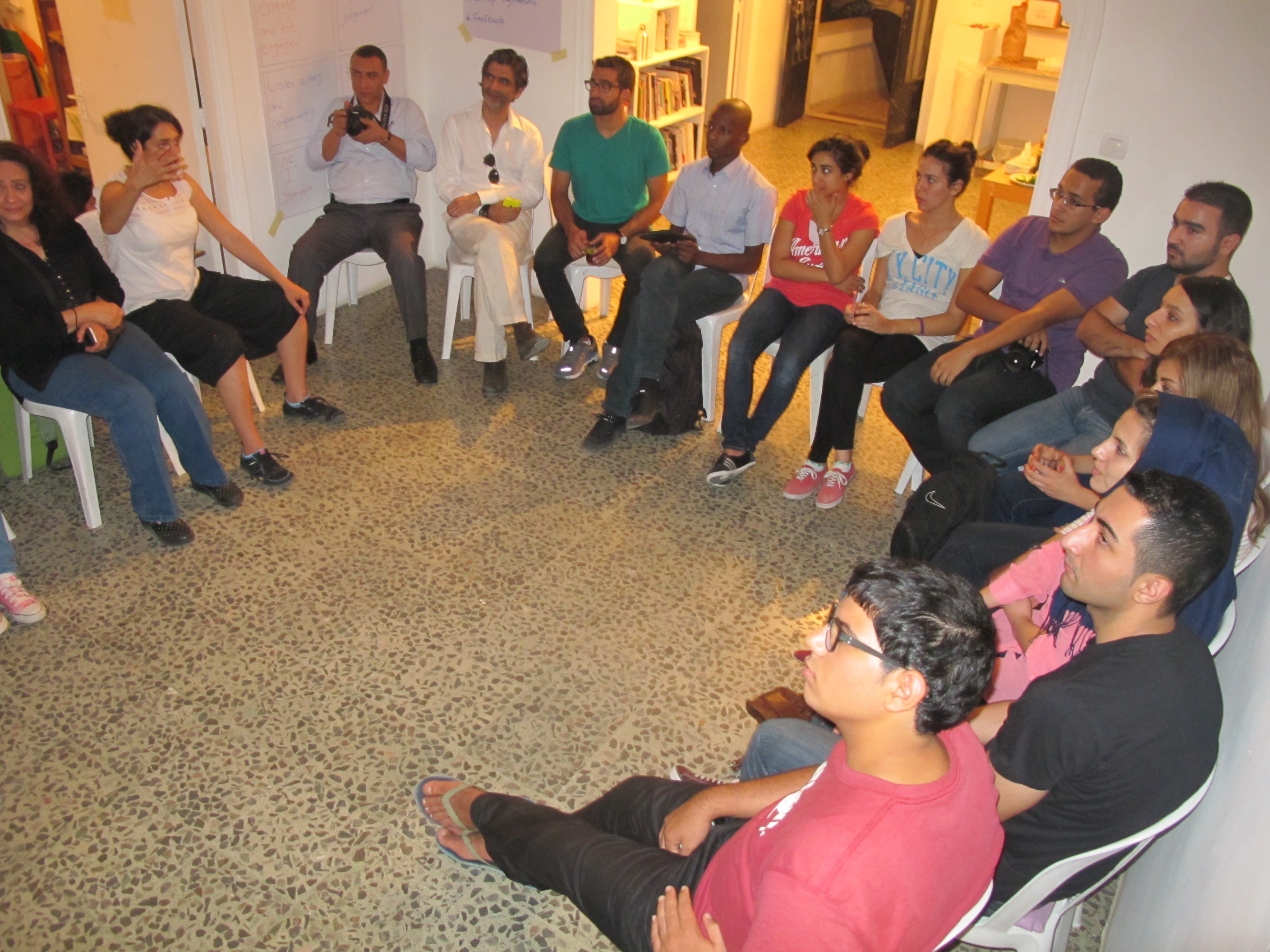 قبل حوالي شهرين استضفنا في مطبخنا الاجتماعي مجموعة من الشباب العربي وبالاخص من العراق ومصر والمغرب العربي. جاء هؤلاء الشباب الى الأردن لحضور ورشة تهدف الى بناء قدراتهم القيادية وتطوير مهاراتهم في مجالات الابداع والريادة الاجتماعية. كان موقع تغميستنا “مكان” مساحة فنية، وكانت غايتنا التحاور والاكتشاف والتأمل لننسج معا مساحة للتعلم التشاركي.
قبل حوالي شهرين استضفنا في مطبخنا الاجتماعي مجموعة من الشباب العربي وبالاخص من العراق ومصر والمغرب العربي. جاء هؤلاء الشباب الى الأردن لحضور ورشة تهدف الى بناء قدراتهم القيادية وتطوير مهاراتهم في مجالات الابداع والريادة الاجتماعية. كان موقع تغميستنا “مكان” مساحة فنية، وكانت غايتنا التحاور والاكتشاف والتأمل لننسج معا مساحة للتعلم التشاركي.
كان تغميس احدى وآخر المحطات التي حط بها قطار التعلم لهؤلاء الشباب الذي دام لمدة ثلاثة أيام. بجدول مليء وسريع بالجلسات والمحاضرات والزيارات لنماذج محلية للابداع الاجتماعي في الاردن، كنا محظوظين بمشاركتهم تجربتنا مع تغميس والتمهل بالتعلم معا، ومعرفة الى ماذا نهدف وماذا نفعل وكيف نعيش.
وجودنا في “مكان” اعطى الشباب فرصة لرؤية نماذج لمشاريع اجتماعية ومحلية مختلفة وكيف اننا في موقع يدمج بين الفن والمجتمع. ومن على سطوح “مكان” كان لهم لقاء أخر مع “ميزان” وتعرفوا على مجال الابداع الاجتماعي من خلال جهاز الحرية -البيت الأخضر الذي يعمل على نظام الأكوابونيك.
جاء الشباب حاملين معهم العديد من القصص من حياتهم وتجاربهم المختلفة وكان لديهم الكثير لمشاركته. تحدثوا عن بعض من مشاريعم المؤثرة التي يعملون عليها مثل، مبادرات لتحسن التعليم، مشاريع للقراءة، مخيمات صيفية، بنوك للدم وغيرها من المشاريع الريادية. معا نظرنا على هذه المشارع من زاوية مختلفة جامعين تجاربنا المتنوعة، ومن هذه الانعكاسات استطعنا تشكيل معاني الريادة والمجتمع والمسؤولية الشخصية.
وكان للحديث عن التعليم والتعلم والمعرفة جزء من هذه الجلسة. عبر بعض من الشباب عن أهمية وجودهم في مثل هذه الورشات ورغبتهم بان تكون متاحة لعدد أكبر من الشباب العربي. الشح والقيود الموجودة في مؤسسات التعليم بالمقارنة بوفرة المعرفة المكتسبة من الحياة والتعلم المستمر كانا من أهم ما أوحى لنا بايجاد تغميس.
التعليم نادر وغير متاح للجميع، ببساطة العالم في نمو مستمر ولا يوجد هناك عدد كاف من المدارس والمعلمين والكتب والورق والاقلام وكل ما يلزم العملية التعليمية لجعلها متاحة للجميع، بالاضافة الى انه لا يوجد وظائف تلبي طموح جميع من تمكن من الوصول الى التعليم، ولا حتى تعمل هذه الوظائف على سد الثغرة بتوفير التعليم للجميع.
التعلم والمعرفة نهر يتدفق دون توقف، بدراية او من غير دراية فاننا في حالة تعلم مستمر حتى عندما نتقدم في العمر. مع مرور الزمن فان موقفنا تجاه التعلم يتغير، ونعمل على تأكيد معرفتنا باستخدامنا المتكرر للفعل “أعرف”. هذا اسلوب التعلم الذي نكتسبه من المدارس، بان نحصر معرفتنا بما يجب ان نتعلمه ونأخذ عليه شهادة تثبت باننا نعرف بدلا من ان نتعلم كيف نتعلم ونوسع مداركنا.
تعلُمنا مع المجموعة تخطى حدود الزمن والغرفة التي نحن بداخلها، كسرنا حاجز القيود بالتعليم وانغمسنا بالتعلم وبالاستمتاع بهذه اللحظات. تسلم الشباب دفة القيادة وقاموا باعداد الجو لتناول تغميسة جماعية، كان للجميع دور في ترتيب المكان، وقاموا بالتعرف على وجبات جديدة وروا لنا عن انطباعاتهم ومقارنتهم لهذا الطعام مع ما هو موجود في مناطق مختلفة من العالم العربي.
الصراحة كنا محظوظين لنكون وسط هذا الكم الهائل من الطاقة والرغبة والأمل في المستقبل. وكنا سعيدين أكثر ونحن نرى التحمس على وجوههم وكيف تمكنوا من اللمس والتقرب وفهم روح تغميس. وأجمل ما في الموضوع إدراكهم بان لديهم الحرية باخذ هذه الروح التعلمية معهم اينما شاؤوا، لان هكذا يجب ان يكون التعلم…مجاني.
Nearly two months ago today, we had the pleasure of sharing taghmees with a diverse group of visiting young Arabs from the region. As recent alumni of youth leadership programs, this group was brought to Jordan for a workshop with the objective of building leadership and developing practical skills in social entrepreneurship and innovation. Our taghmeeseh took place at Makan Art Space, where we welcomed them to explore, reflect, and together create a social kitchen for our shared learning.
For these young Arabs, we were merely one stop along the way in a 3-day schedule packed with training sessions, presentations, and visits to local models of social innovation. They basically wanted to learn about Taghmees Social Kitchen; what it is we do, and how and why we do it, among other things.
Fortunately for us, we were their final visit for both the week and the day, so we were able to really slow down and actually experience taghmees together. As a life and experience based approach to learning, it’s the most fitting way to share our concept – simply by engaging people in it.
Since the group was interested in local models of social ventures, being at Makan provided a great opportunity to describe their approach to creating a space that supports art and community. Meezan – recent fellow residents at Makan – provided another great example of social innovation with their Freedom Machine, a rooftop aquaponics greenhouse.
Considering that the youth were already full of great stories from their own lives and recent experiences, they also had a lot to share. They talked about some of the incredible work they had been involved in, such as student-led blood drives, education reform initiatives, reading ventures, and summer camps, among others. We reflected on what had been learned from our different experiences, using them to shape our meaning and understanding of leadership, community, and personal responsibility.
We also spent some time talking about learning and education in general. Some youth expressed appreciation and value for the diversity of competencies they had gained through engaging in leadership programs, wishing more people in their communities could learn similar things. One of our inspirations for starting Taghmees is based on the scarcity and limitations found in the institution of education as compared to the abundance found in learning.
Education is scarce – simply, there are not enough school buildings, desks, teachers, books, paper, pencils, chalkboard, computers, projectors, etc., to bring “education” to all who need it. Nor are there enough jobs to satisfy all those that do manage to receive an “education”. Nor do these jobs really go to serve the needs of the people or the families of the people who are struggling to access education and/or jobs for themselves or their children.
Learning is abundant – whether we are conscious of it or not, we are constantly learning, even as adults. With time, our attitude towards learning merely changes, reinforced by confidence in what we already “know”. This is the kind of attitude we develop from going to school and rather than learning how to learn, we’re taught what we’re “supposed” to know, and given a certificate to prove that we “know” it.
In that space together, our engagement was far removed from the frameworks of education, but our learning was deep, while also being fun! Especially when the youth took the lead and set up the space to enjoy some local taghmees-style food. From their reactions, we learned a lot about what they found unique about our local homemade dishes, in comparison to food commonly found in different parts of the Arab world.
For us, it was truly inspiring to be in the midst of so much energy, will, and hope for the future. The most rewarding part was their enthusiasm throughout, and finding out how well they had grasped the spirit of taghmees. Above all, it was great to see them recognize that they were free to take that spirit with them. Because that’s how learning should be – free. 